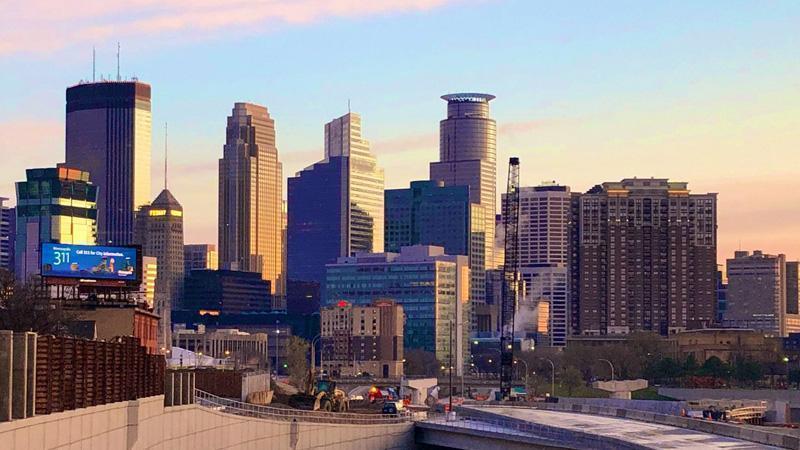Minneapolis turning to influencers for social media messaging during Chauvin trial
The city of Minneapolis is bracing for protests again; jury selection in the trial of former Minneapolis police officer Derek Chauvin is set to begin on March 8.
The city has fortified the downtown area and says it will continue preparing. But City Council members also approved a measure they say will keep protests calm — they’re turning to social media influencers.
Those six social media "partners," as the city refers to them, will be from various minority communities. Each will likely be paid $2,000 during the upcoming trials for the ex-Minneapolis police officers to share city-approved messages with the community via social media.
“The thing that is unique here is that you’re actually talking about individual people who are considered influencers that then become authorities," Minnesota political analyst Blois Olson said. "Or they’re using taxpayer dollars to pay a person, and what’s that’s person’s politics? What’s that person’s agenda?”
It’s unclear what social media platforms the social media influencers will use — Twitter, Facebook, Instagram, Snapchat or TikTok.

[Alex Jokich/KSTP]
The communication strategy makes sense to some.
“It’s a unique strategy for the city to compensate influencers to comment. But we’re in an era of great distrust, and everyone has different sources they trust,”Olson said.
But the strategy doesn’t make much sense to others.
“If you go through lengths and measures to buy a narrative, what does that say about the leadership and trust that has been eroded in the past few years?” said Toussaint Morrison, Minneapolis community activist.
The city could be using some of these “messengers” to help squelch rumors, in hopes of preventing any riots.
“You buy people to tell you that your emotions aren’t valid, or that you should stay home and not protest, or that certain things are more important than justice. So I really feel that them trying to buy the narrative from social media influencers is really disappointing,” Morrison said.
The social media partners are part of a $1.2 million communication strategy the City Council approved on Friday.
The city of Minneapolis released the following statement to 5 Eyewitness News:
“The City is collaborating with social media partners to share public information with cultural communities and to help dispel potential misinformation during the upcoming trials of the former officers involved in the killing of George Floyd. The goal is to increase access to information to communities that do not typically follow mainstream news sources or City communications channels and/or who do not consume information in English. It’s also an opportunity to create more two-way communication between the City and communities. The recommendations for which social media messengers to partner with come from the City’s Neighborhood and Community Relations staff. The agreements with the social media partners have not been finalized. The City is adhering to procurement requirements for the selection and contracting processes.
"The City first collaborated with cultural social media partners prior to the Super Bowl in Minneapolis in 2018. We realized that posting information in English and other languages, such as Spanish, Hmong and Somali on our City social channels would not be enough. Through partnerships with community members we were able to post timely information on street closures, transit changes and other important public information on the City account in multiple languages and the partners amplified the translated messages to their own networks. The social media partners also were able to contact the City if they heard a rumor or a concern so that we could quickly verify the information and share out a corresponding message.”